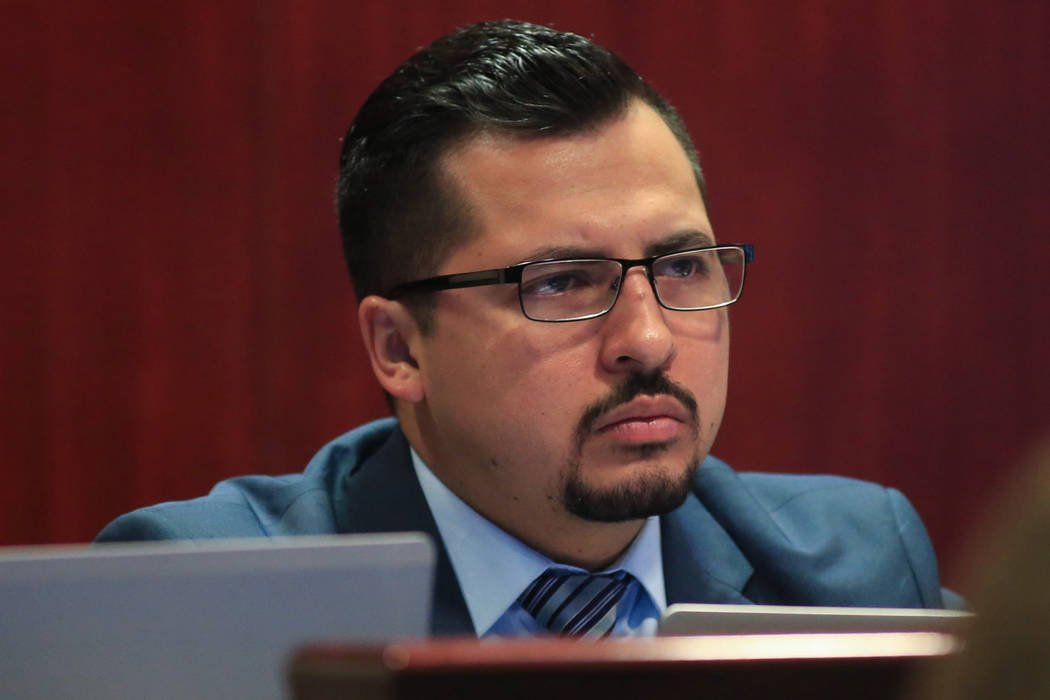Measure aims for makeover of Nevada’s war on drugs

CARSON CITY — Nevada’s war on drugs may be getting a makeover.
Assembly Bill 438 would put in place reduced penalties for offenses tied to controlled substances. Conflict over the measure is centered on the question of whether America’s decades-long war on drugs is working, and if Nevada should rethink its approach.
“The war on drugs has been long and exhausting, and we’re not seeing any changes,” Assemblyman Edgar Flores, D-Las Vegas, the bill’s sponsor, told the Assembly Judiciary Committee on Tuesday.
Flores said Nevada has tougher drug penalties than the feds and stressed the need for low-level offenders to get treatment instead of prison time.
The bill has drawn support from public defenders and opposition from the Metropolitan Police Department. Supporters say a new approach is needed to provide treatment for addicts, pointing to Nevada’s high incarceration rates.
“The intent of this discussion and why we’re here today is me asking the state of Nevada to look at non-violent offenders who have flooded our prisons and we ask ourselves: ‘Is that working?’” Flores said.
A spokesman for Metro, however, said sellers, not addicts have large amounts of drugs and called the bill a “drug dealer’s dream come true.”
The bill has a provision that provides a defense for someone who has been forced to engage in drug trafficking. Under the bill, possessing less than one gram of a drug would be a misdemeanor, with the exception of date rape drugs.
Penalties change
Lawmakers heard about the state’s drug laws from John Piro of the Clark County Public Defender’s office. The existing structure, Piro said, is “unfair, unworkable and does not give the judge any discretion.”
Piro said the bill would “put discretion back where it belongs — with a judge.”
State law does not require proof that the drugs were manufactured or intended to be trafficked for a trafficking conviction. The law also does not make a distinction regarding the type of drugs involved.
Currently, low-level drug trafficking is a felony with one to six years in prison for the possession of four to 14 grams of drugs. Mid-level trafficking, for possession of 14 to 28 grams of drugs, is a category B felony punishable by two to 15 years in prison. High-level trafficking involves 28 grams of drugs and is punishable by mandatory prison sentences of 10 years to life or 10 to 25 years.
Opposition and concerns
Chuck Callaway, representing Metro, urged lawmakers to reconsider. He said the department wants addicts to get help, but it has concerns about the rising violence tied to drug trafficking. About 20 percent of the murders this year in Clark County are drug-related, he said.
Callaway called the bill a “drug dealer’s dream come true” and noted that rather than saying the war on drugs has failed, it’s important to look for solutions.
Contact Ben Botkin at bbotkin@reviewjournal.com or 775-461-0661. Follow @BenBotkin1 on Twitter.